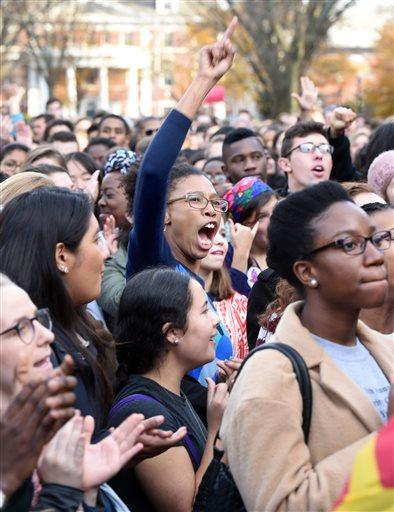A back-and-forth over Halloween costumes at Yale University that has ramped up to emotionally high levels has attracted nationwide attention in the latest debate involving free speech and censorship.
The situation started when faculty members sent an email to students advising them to think hard about their costumes so that they wouldn’t disrespect or ridicule others.
“Halloween is also unfortunately a time when the normal thoughtfulness and sensitivity of most Yale students can sometimes be forgotten and some poor decisions can be made including wearing feathered headdresses, turbans, wearing ‘war paint’ or modifying skin tone or wearing blackface or redface. These same issues and examples of cultural appropriation and/or misrepresentation are increasingly surfacing with representations of Asians and Latinos,” the teachers wrote.
But some students were upset over what they saw as restricting their free expression, and went to Erika Christakis, who presides over one of the university’s undergraduate colleges as a live-in guide.
She sent out an email to that college’s students and faculty, advising them to take the opportunity to reflect on the issues the original email raised.






